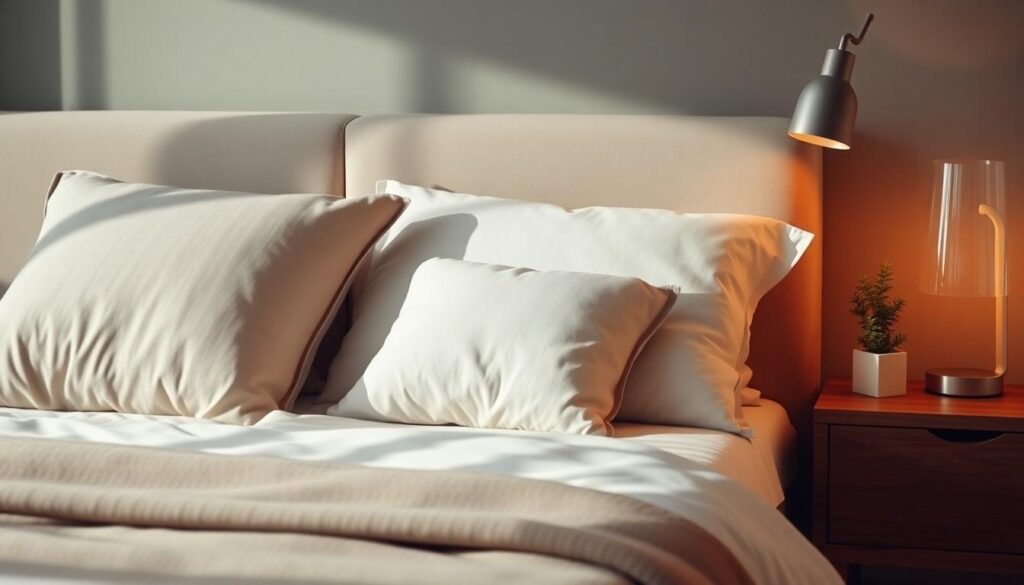In a world where sleep often takes a backseat to Netflix binges and late-night snacks, the quest for quality rest can feel like a never-ending battle. Enter the sleep hygiene therapist aid, the unsung hero in the fight against restless nights and groggy mornings. This isn’t just another self-help gimmick; it’s a game changer for anyone looking to reclaim their sleep.
Imagine a sidekick that helps you transform your bedtime routine from chaotic to calming. With the right tools and strategies, sleep hygiene therapists guide individuals through the maze of sleep habits, making sure they don’t hit the snooze button on their health. So if tossing and turning feels like your nightly routine, it’s time to embrace the expert advice that can lead to sweet dreams and brighter days. Who knew that a good night’s sleep could be just a therapist away?
Table of Contents
ToggleOverview of Sleep Hygiene
Sleep hygiene refers to a set of practices and habits that promote consistent, uninterrupted sleep. Establishing a sleep-friendly environment significantly enhances the ability to fall asleep and stay asleep. Factors such as light, noise, and temperature play a crucial role in shaping sleep quality.
A regular sleep schedule, which includes going to bed and waking up at similar times every day, supports the body’s natural circadian rhythm. This consistency helps regulate the sleep-wake cycle, leading to improved sleep efficiency. Avoiding stimulants like caffeine and nicotine before bedtime can significantly reduce disturbances during the night.
Engaging in relaxing activities before sleep fosters a peaceful transition to rest. Techniques such as reading, listening to calming music, or practicing mindfulness may promote relaxation and readiness for sleep. Moreover, it’s important to limit screen time from devices like smartphones and computers, as the blue light emitted can interfere with the production of melatonin.
Creating an optimal sleeping environment by keeping the bedroom dark, quiet, and cool enhances comfort. Comfortable bedding and pillows further contribute to restful sleep. When individuals implement these practices, they can benefit from increased energy levels and improved mood during the day.
Sleep hygiene plays a vital role in overall health and well-being. Individuals facing persistent challenges may find it beneficial to consult a sleep hygiene therapist, who offers personalized strategies to improve these habits. They serve as valuable resources for creating tailored approaches that meet individual needs, enhancing the journey to better sleep.
Importance of Sleep Hygiene

Sleep hygiene plays a crucial role in maintaining overall health and well-being. Prioritizing effective sleep practices can lead to significant improvements in both physical and mental health.
Physical Health Benefits
Good sleep hygiene contributes directly to physical health. Quality sleep strengthens the immune system, helping the body fend off illnesses. It assists in weight management by regulating hormones related to hunger and metabolism. Adequate rest lowers the risk of chronic conditions such as heart disease, diabetes, and hypertension. Reduced inflammation results from restorative sleep, promoting faster healing and recovery. A well-rested individual exhibits better coordination and reaction times, enhancing overall physical performance.
Mental Health Benefits
The impact of sleep hygiene on mental health is equally vital. Improved sleep quality reduces stress and anxiety levels, fostering a calmer state of mind. Emotional regulation benefits significantly from sufficient rest, allowing individuals to process feelings more effectively. Higher cognitive function, including improved focus and memory, stems from consistent and restful sleep. Individuals with good sleep hygiene often report lower incidences of mood disorders such as depression. Establishing a regular sleep pattern reinforces mental resilience, contributing to overall emotional well-being.
Role of a Sleep Hygiene Therapist Aid
Sleep hygiene therapist aids play a pivotal role in enhancing sleep quality through professional guidance and support. They assist individuals in establishing healthy sleep practices tailored to their unique needs.
Credentialing and Expertise
Sleep hygiene therapist aids often possess certifications in sleep health or related fields. Training programs equip them with knowledge about sleep science and effective intervention techniques. Many therapist aids hold degrees in psychology, nursing, or social work, providing a solid foundation for understanding the complexities of sleep disorders. Their expertise allows them to assess clients’ sleep habits accurately, identifying barriers to restful sleep. By leveraging their credentials, they instill confidence in those seeking assistance, fostering an environment conducive to change.
Techniques and Strategies
A variety of techniques help therapist aids implement effective sleep hygiene practices. For starters, they may introduce sleep logs that encourage tracking patterns and identifying triggers. Behavioral modifications play a significant role in promoting consistent sleep schedules. Mindfulness practices, such as meditation and deep breathing exercises, aid relaxation before bed. Environmental adjustments enhance the sleep atmosphere; reducing noise levels and optimizing bedroom temperature are common strategies. By employing these diverse methods, therapist aids empower individuals to cultivate better sleep habits, ultimately leading to improved health and well-being.
How to Choose the Right Sleep Hygiene Therapist Aid
Choosing the right sleep hygiene therapist aid involves careful consideration of several key factors.
Factors to Consider
Credentials can indicate a therapist’s expertise. Look for certifications in sleep health or related fields as a basic requirement. Experience also plays a significant role, so seek professionals who have successfully worked with clients facing similar sleep issues. Methods used by the therapist should align with personal preferences. Some individuals might benefit from cognitive behavioral techniques, while others prefer mindfulness practices. Availability is essential, too; therapists who offer flexible scheduling can accommodate busy lifestyles more easily. Finally, consider the approach and personality of the therapist, as a good rapport enhances the effectiveness of intervention strategies.
Questions to Ask
Specific questions can clarify a therapist’s suitability. Inquire about their experience working with specific sleep disorders. Understanding their treatment philosophies reveals whether their methods align with personal values. Ask how they assess sleep patterns to determine if their evaluation process matches expectations. Explore their success rates with previous clients; high success rates often indicate effective practices. Finally, don’t hesitate to ask about follow-up support they provide after initial consultations, as continued guidance can significantly enhance sleep improvement outcomes.
Prioritizing sleep hygiene is essential for achieving optimal health and well-being. A sleep hygiene therapist aid can provide the necessary support and expertise to transform sleep habits effectively. By offering personalized strategies and professional guidance, these therapists empower individuals to tackle sleep challenges head-on.
Embracing the principles of sleep hygiene with the help of a qualified therapist can lead to significant improvements in sleep quality. This journey toward restful nights not only enhances physical health but also boosts mental clarity and emotional stability. With the right approach and support, a good night’s sleep is within reach for everyone.




